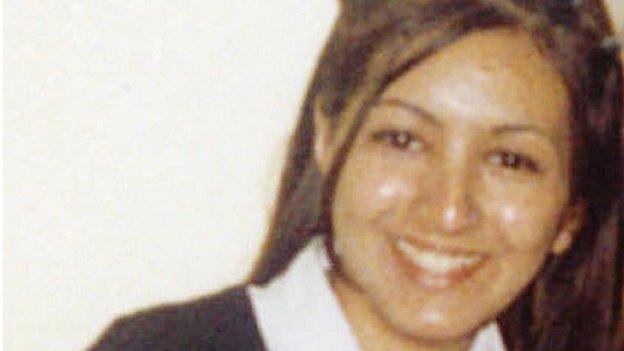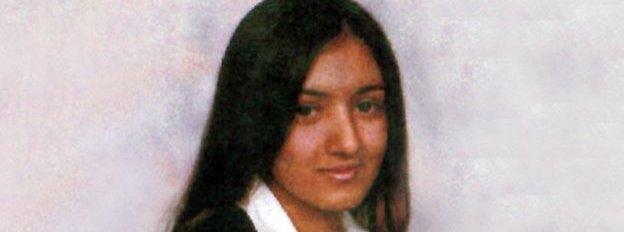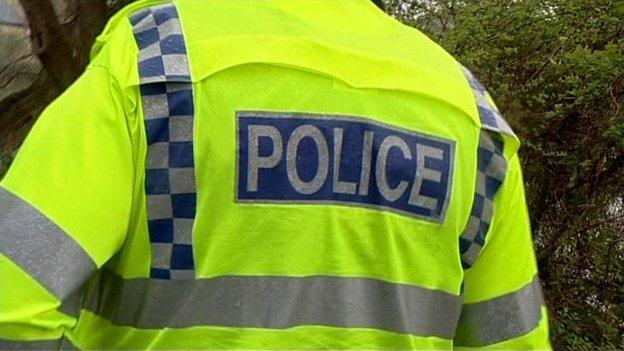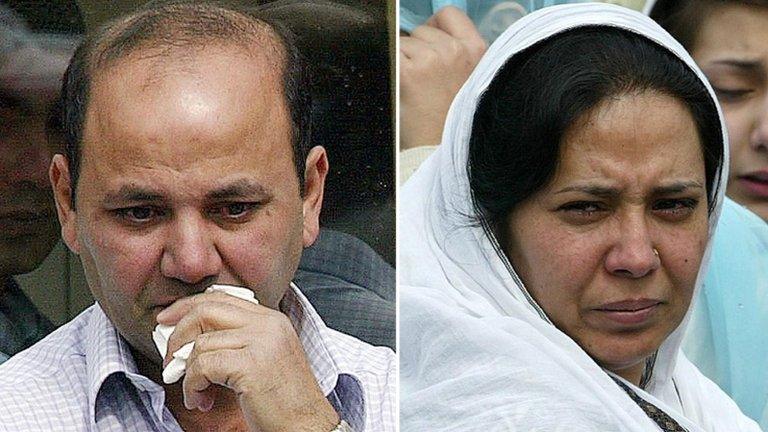'Honour killing' victims: First national memorial day
- Published

Shafilea Ahmed was killed in 2003. It would have been her birthday on Tuesday.
The first memorial day for victims of so-called honour killings is taking place on Tuesday.
It would have been the 29th birthday of Shafilea Ahmed, who was killed by her parents when she was 17 after suffering years of "honour-based" violence.
UK police forces recorded more than 11,000 cases of "honour" crime between 2010 and 2014.
They are acts committed to defend the supposed honour or reputation of a family and community.
The crimes, usually aimed at women, can include emotional abuse, abduction, beatings and murder.
'Most honourable human beings'
According to a report by The Henry Jackson Society, 18 cases of honour killings were committed in the UK between 2010 - 2014.
However, campaigners believe the figure may be higher.
The National Day of Memory for Victims of Honour Killings, external, intended to be an annual event, has come about after a campaign by Karma Nirvana, a charity originally set up in Derby that supports victims of honour crimes and forced marriages, and Cosmopolitan magazine.
Jasvinder Sanghera, CEO of the charity, said: "We are going to be honouring the memories of the most honourable human beings where the perpetrators tried to erase them completely.
"It's also an opportunity to raise awareness about the issue of honour based abuse and the scale of the problem in Britain."

Who was Shafilea Ahmed?

Shafilea Ahmed, 17, went missing from her home in Warrington, Cheshire, in 2003. Her body was found on the banks of the River Kent in Cumbria six months later.
Her parents, Iftikhar and Farzana Ahmed denied her murder but were found guilty of the crime by a jury at Chester Crown Court in 2012 and jailed for life.
The court had heard Bradford-born Shafilea was murdered because her parents believed she had brought shame on the family. She had been suffocated with a plastic bag, following years of abuse.
Her parents believed she was too westernised because she wanted to attend parties, go on dates and wear make-up.
Months before she died she had filled out a housing form, saying she wanted to move out and that she feared she would be married off against her will. She had apparently also drunk bleach during a family trip to Pakistan when her mother told her she would not be returning to the UK, the trial was told.
Detectives say Shafilea's parents wanted to make her conform to their interpretation of Pakistani culture.
Sentencing them, Mr Justice Evans said their desire for her to live in a "sealed cultural environment" was "unrealistic, destructive and cruel".

'Harsh lessons learned'
Relatives of victims say there have been failures in investigating "honour-based" crimes.
Jagdeesh Singh's sister, Surjit Athwal, 27, was murdered in a so-called honour killing in 1998.
Her mother-in-law Bachan Athwal and husband Sukhdave Athwal, of Hayes, west London were jailed at the Old Bailey in 2007 for arranging her murder.
Mr Singh is calling for a public inquiry.
He said: "We need to pull together the harsh lessons learned, from a community level, a policing level and a government level."
Events being held to mark the day include a London conference where survivors of "honour-based" violence will share their stories.
At the conference, The Henry Jackson Society research fellow Emily Dyer will launch a report on survivors of "honour" abuse.
The report, Britain's Forgotten Women, concludes that while there has been significant progress in raising awareness of forced marriage and "honour-based" abuse in the UK, there are gaps in support for survivors.
Schools are also taking part in the day, with one secondary school in Manchester that has worked to prevent forced marriages holding a special assembly and releasing balloons.
- Published9 July 2015

- Published3 August 2012

- Published3 August 2012
